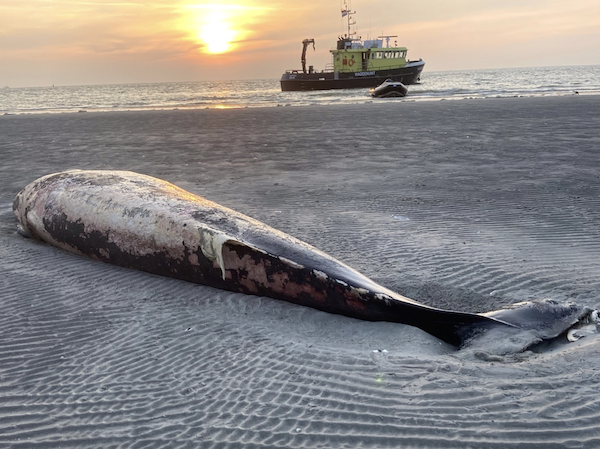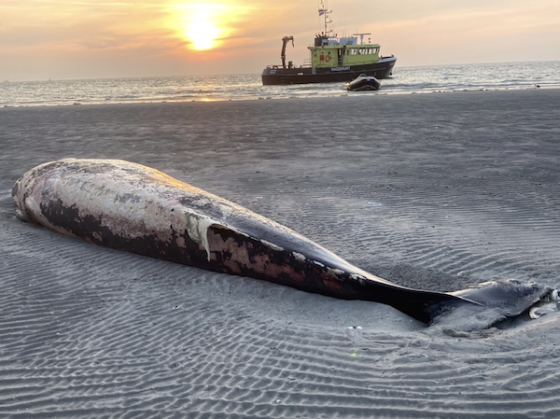Dead whales cause a bit of a stink but are good for biodiversity


Dead beached whales should be left where they are because they improve biodiversity, a study by the infrastructure ministry and Wageningen Marine Research has shown.
Researchers were given a chance to find out what happens if cadavers are left to rot on the uninhabited Wadden island of Rottummerplaat where a dead whale was found in 2020.
Cameras recorded the process for seven months while body and insect samples were taken.
‘We didn’t quite know what would happen but did expect the whale to provide a feast for birds because they also scavenge dead seals,’ researcher Martin Baptist told broadcaster NOS . In the event the whale’s skin was to hard for the birds to penetrate, leaving them looking ‘a bit nonplussed’, Baptist said.
It was another story for insects, the researchers found. The cadaver attracted some 57 different species of beetle, including 21 species not native to the island and which had flown from the mainland for the occasion. ‘Beetles will be profiting form this carcass for the next few years’, Baptist said.
The rotting whale meat and calcium-rich bones also benefitted the poor sandy dune soil, which also improved biodiversity.
Dead whales are usually disposed off very quickly because of fears of stench and the high amount of cadmium the animals contain.
However, since the birds could not peck open the skin the stench was limited. The animal in question was relatively young and did not have a high cadmium content, keeping the beach relatively safe from pollution, the researchers found.
Officials say they would like to conduct more experiments of this kind if the process does not get in the way of shipping or cause a nuisance to locals.
Thank you for donating to DutchNews.nl.
We could not provide the Dutch News service, and keep it free of charge, without the generous support of our readers. Your donations allow us to report on issues you tell us matter, and provide you with a summary of the most important Dutch news each day.
Make a donation